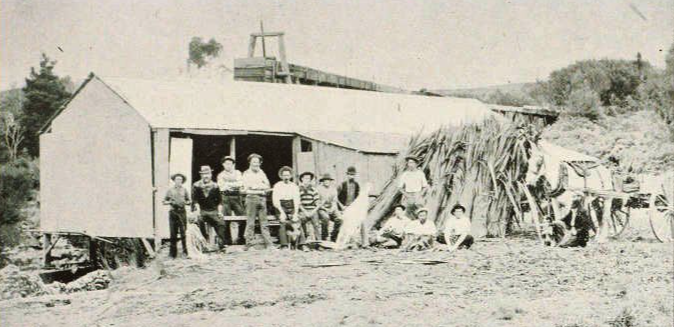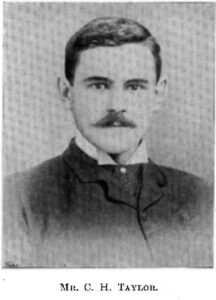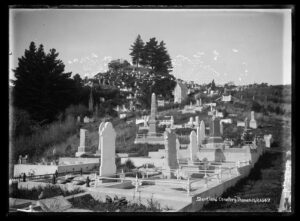As part of a Valley Profile series, MEGHAN HAWKES explores our local history by seeking out stories of life and death in the Thames Valley.
John Dalton was after a spot of relaxation on a Sunday afternoon in April 1867 at Pūkorokoro – Miranda.
He worked at Mr Dix’s flax mill at the Miranda Redoubt, one of a party of six men who were engaged in the hard labour of preparing flax.
The 22-year-old lived with other mill employees and one of them, James McNeil, idly watched as John measured out some shot with his hand and loaded it into his double barrelled gun.
As John left the house about 4pm he said he was going to look for pigeons to shoot.
He appeared to have been successful as about quarter of an hour later James heard a shot fired.
The report of the gun was also heard by the other men, but no more notice taken of it until night set in, when John hadn’t returned.
The men went out and fired a pistol, thinking, perhaps, John might have lost his way, but they received no answer.
The next morning his workmates again went out to look for him and were horrified to find him about 6.30 around half a mile from the Redoubt along the beach, lying face down, dead.
His gun had burst and lay in several pieces around him. His mates took his body to the Redoubt, and a messenger was despatched to Constable Morris, who then alerted the coroner.

At the inquest, held at the Redoubt, James Grix, who had also observed John preparing the gun, said that John was sober when he loaded the gun and did not put two charges in one barrel.
The gun itself was found to be quite unsafe. Henry Porter, who had carried firearms for 21 years, said the gun was worn out, dirty, and manufactured of very inferior metal.
Dr William Montague Hall Welby said that head injuries were the cause of John’s death which was almost instantaneous.
The jury found that John was killed on the Pūkorokoro flat, near the Miranda Redoubt, “by the bursting of a gun accidentally, by misfortune and not otherwise.”
Around three weeks later, Mr Dix broke up his flax mill and returned with it to Auckland on the cutter Peter Cracroft, taking with him his household and workmen, spooked by a disturbing atmosphere that had fallen over the district.
Some days earlier a Māori had warned him of the hostile intention of a band of other Māori who were gathering strength in the district, and were threatening to attack the mill at Pūkorokoro.
Several strange Māori had previously visited the place, and left an unfriendly feeling on departing, and this, coupled with other threats, convinced the mill workmen to desert their posts.
Mr Dix, finding his men reduced to two, abandoned the spot.
John Dalton was buried at Drury.




